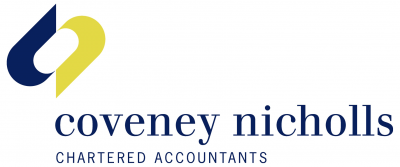Are you looking for a tax accountant? East Grinstead accountants can help with local knowledge to devise specific and tailored tax planning strategies that actually assist you, rather than just confusing you.
We’re accountants with an office in East Grinstead, so we get that not every business works the same as the larger ones in the cities. As such, your tax strategy is probably going to be very different to what you might read online.
So, let’s go over the most important tax strategies for businesses in East Grinstead.
Choose the right business structure
Most businesses in the UK are sole traders and limited companies, each with their own tax liabilities, with the former paying income tax on profits and the latter paying corporation tax.
Both of these taxes are charged at different rates. First, corporation tax is charged at 19% on profits of £50,000 or less and 25% on profits above £250,000; profits in between pay an effective rate of between 19% and 25% after applying marginal relief.
Income tax, on the other hand, is what’s called a progressive tax — different rates apply to different portions of income rather than the entire income. The rates are as follows:
| Band | Taxable income | Tax rate |
| Personal allowance | Up to £12,570 | 0% |
| Basic rate | £12,571 to £50,270 | 20% |
| Higher rate | £50,271 to £125,140 | 40% |
| Additional rate | Over £125,140 | 45% |
What does all this mean? Broadly speaking, the more you make, the more you will benefit taxwise from running your business as a company. If you don’t make much, you might want to put it off, especially because your first £12,570 is tax-free — companies don’t get an allowance like this.
However, there is more to business structure than just tax, so make sure you discuss yours with your accountant before you switch.
Maximise deductions
East Grinstead businesses have numerous opportunities to deduct expenses from their income before taxes. The result? A small taxable income and a smaller tax bill. Common deductions include:
- Business equipment, including rent, utility bills, office supplies, computers, stationery and vehicle expenses (if used for business purposes).
- Employee wages, along with associated employer National Insurance contributions.
- Professional fees, including those paid to accountants and legal advisers.
- Home office deductions, based on the percentage of your home used for businesses.
To know whether or not you can deduct a business allowance, just know that the rules generally say that you can only deduct a cost if it was incurred wholly for business purposes.
For a close look at the rules for allowable expenses, have a read of our blog on business expenses. It’s aimed at GPs, but by the end of it, you’ll understand the rules and how travel expenses work.
Defer — or accelerate — income
Many small businesses use the cash method of accounting for their books and tax returns. Under this method, a business recognises income when it’s received and expenses when paid — in other words, when cash actually changes hands. This creates a good opportunity for tax planning strategies.
First, you may be able to defer income. So, if you did some work towards the end of your accounting period but took payment in the start of the next, that extra tax payment would come later — great if your business isn’t doing too well right now or you want to save some money to invest in the immediate future.
Alternatively, it can make sense to accelerate income into the current year — especially if you think tax rates will increase in the near future.
Want to discuss your tax plans with a professional? Talk to us. We’re the perfect tax accountant, East Grinstead, so don’t hesitate to get in touch!

